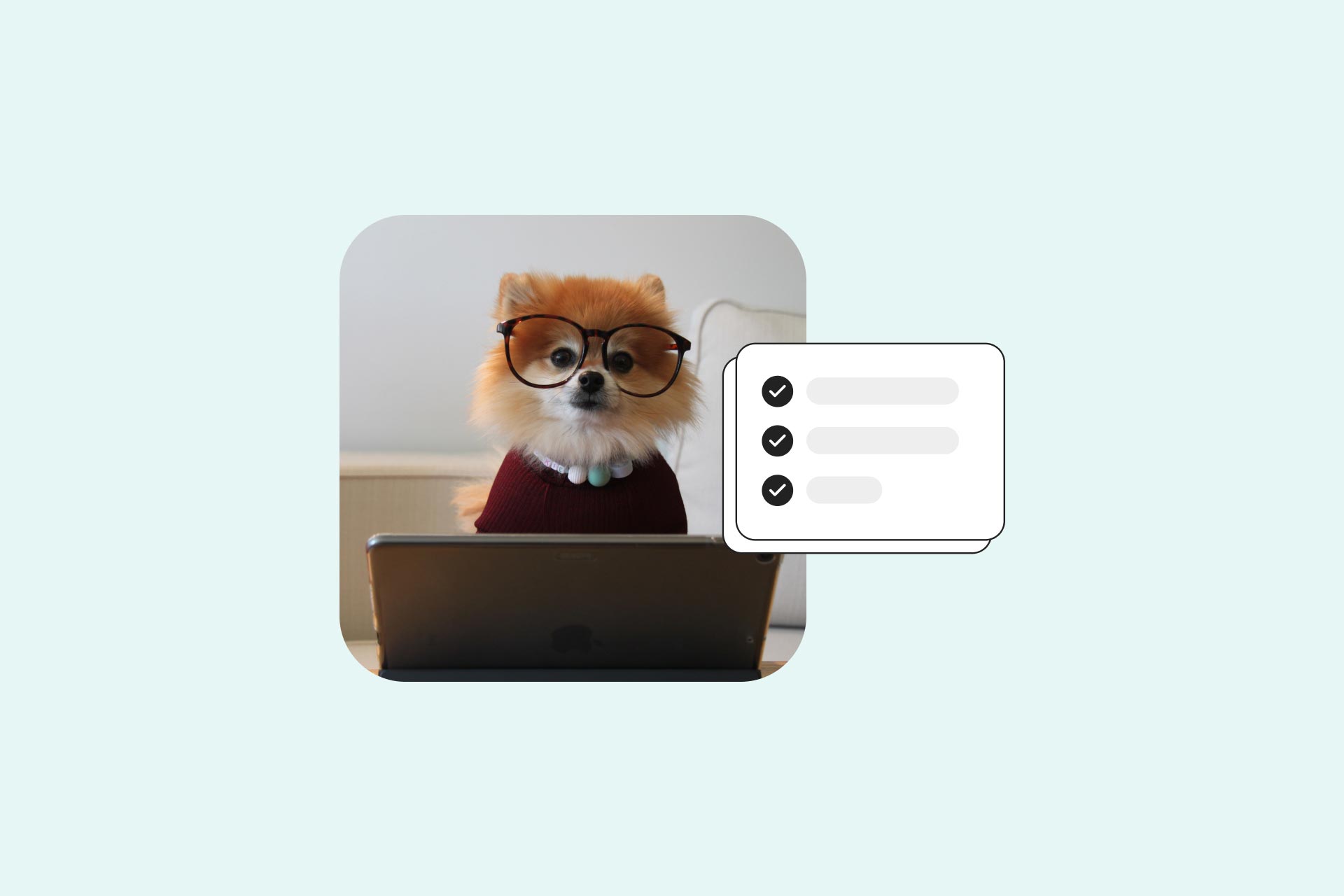Seven steps to building a personal brand that will make you stand out
The idea of a personal brand was first introduced by the renowned management thinker and writer, Tom Peters. In his famous article published in 1997, "The Brand Called You," Peters introduced the idea that "we are CEOs of our own companies: Me Inc."

Table of contents
- It’s a tough job market
- Personal branding is how people stand out
- What is a personal brand?
- The idea of a personal brand has evolved since 1997
- Should I have a personal brand?
- How to develop a personal brand
- Conclusion
It’s a tough job market
Building a personal brand can feel like another thing you have to do to get a job. When you’re looking for a job, it isn’t enough to submit a generic cover letter and resume to an online job posting. Most likely, your resume won’t ever reach a hiring manager. Some algorithm that sifts through all other resumes will check yours for specific keywords, and if you don’t have them – which a generic resume may not – it is denied. This can feel pretty cutthroat and unempathetic. It is.
When you’re at the beginning of your career, you lack industry connections, real-world experience, and knowledge to show employers that you will deliver results. If you’re shifting careers into a new industry, you may have skills, but you may still lack the connections and specific industry knowledge you need.
Either way, no one is arguing that it’s tough to stand out when want to advance professionally.
Personal branding is how people stand out
Generic resumes don’t work anymore. Instead, the hiring manager and companies you’re interested in want to see some real work experience. It’s important to have a portfolio or personal website that showcases your past work. It’s like a highlight reel of what you can do.
People also stand out by crafting unique social media profiles or writing blogs about their interests. They are broadcasting to the world who they are and what they value. They are creating a personal brand, which is what you need to stand out today.
What is a personal brand?
The idea of a personal brand was first introduced by the renowned management thinker and writer, Tom Peters. In his famous article published in 1997, “The Brand Called You,” Peters introduced the idea that “we are CEOs of our own companies: Me Inc.”
The notion of thinking about ourselves and our reputations the way large companies think about their brand was revolutionary in the ’90s. This can be due to tech CEOs’ rising popularity, like Bill Gates and Steve Jobs, who made entrepreneurship the ideal for many ambitious people.
I’d encourage you to read the article first published in Fast Company. You’ll go back to the original thinker behind the idea of personal branding, and you may also get a kick out of hearing him talk about the “net” and email as someone from the ’90s.
The idea of a personal brand has evolved since 1997
So you’re the CEO of your own brand – what does that mean?
Well, Wikipedia says that personal branding is the “intentional effort to create and influence public perception of an individual.”
Simply, it’s telling the world who you are. And the way you do this in the 21st century is through the internet.
We’re all media companies now, as Gary Vaynerchuk makes clear. Everyone has a digital presence, and anyone is searchable. If you want to get a job, start your own business, or meet new people, you have to expect that people will be typing your name into Google after meeting you. The cool thing is that we have control over how we show up online. We use the internet to make our voices heard and showcase who we are.
In the 21st century, it’s widely believed that “if you don’t know how to stand out, you WILL get left behind.” This statement gives us some serious FOMO and anxiety that we have to be someone, have a bunch of followers, or be a socialite online.
This isn’t what a personal brand should be about.
For you – someone looking to advance in their career and move past the endless job boards – the goal of a personal brand isn’t to be the next Kardashian or TikTok star.
Should I have a personal brand?
If you’re reading this blog, you’re probably looking to build your career. You are trying to carve your own path and figure out what you want to do with your life; I know – the most frustrating question you can be asked.
We all have personal brands, so if you’re feeling stuck, crafting your personal brand is a way to move forward. It’s a way to invest in doing things that interest you, like starting a blog or sharing a cool project online. These things aren’t a waste of time. They make you more than just a resume and allow you to follow your passions (cheesy, I know, but true).
You may not have a website or blog right now, but you probably have some social media profiles. These things showcase who you are and what your values are. If you want to get that job, start that side hustle, or begin freelancing, you’ll need to do more than have a Facebook profile to stand out.
So if you’re sick of scrolling through endless job boards and want to find the jobs or build the future you want, here are seven steps to developing your personal brand.
How to develop a personal brand
What are you known for right now?
The first step in developing a personal brand is to find out how you are currently viewed. You can’t determine how you want to be seen if you can’t understand how others see you. To find out how you are seen, ask your friends and family – those closest to you. Ask them these questions:
- What kind of things am I really good at?
- What motivates me?
- Where do I struggle the most?
- What parts of my job seem to drain my energy?
- Which projects can I spend hours on without feeling overwhelmed or tired?
By asking these questions to both of your family, friends, coworkers, or managers, you’ll get answers from different contexts. You’ll also start to see that people are saying similar things. That’s your personal brand right now.
What do you want to be known for?
After you know your current personal brand, the next step is to decide what you would rather be known for and close that gap.
Maybe you heard from your friends and family that you are a big picture kind of thinker. You like to see how each piece fits into the whole and what the point of it all is. Because of this, you may also hear that you can sometimes neglect the important details.
Who are you speaking to?
After you know the current state of your personal brand and where you’d like to be, the third step is to determine who your audience will be.
When you develop your personal brand, you are crafting your voice. You are showing who you are and what you stand for by the content you create online.
Make a plan
Now for step four, make a plan to build your personal brand online consistently. After you have decided the gap between where you are now and where you want to be, and you know who your audience is, it’s time to take action.
Building a personal brand requires consistency. You can’t publish a single blog, social media post, video, etc. and call that your personal brand. Instead, your personal brand is the accumulation of all those things being published online over time, consistently.
Document your journey
Make a plan to create content that will build up your personal brand over time. If you want to become a digital marketer, create blog posts about different digital marketing domains, or document your journey of learning digital marketing. You might even have a success story to share.
After you decide what you want to share, decide how you want to share it. It could be a YouTube series, a social media page, a personal blog, or a podcast. Choose your medium and stick to it. You can branch out into other areas over time, but it’s best to start with just one, so you don’t get overwhelmed.
Talk to interesting people in your niche and work with them
As you begin to create content consistently around a specific topic or niche, you will have a reason to introduce yourself to other people in that niche. It can be uncomfortable to reach out to people you have never met before, asking to speak to them without reason. By having a body of work published online, you have the perfect excuse to reach out to someone in your field who’s a professional and ask to speak to them. This is a great opportunity to expand your professional network, learn more about the niche you’re in, and possibly find a future mentor. You can also document these conversations and share them.
Build a community
Having several conversations with people in your niche is a great way to start building a community. These conversations’ goal is initially to speak to people who are farther along in their journey than you. As you document the valuable insight and advice that these people share, you can, in turn, share that with people who are just starting their own journey.
You will begin to build an audience of people who are interested in what you are doing. This is a great opportunity to continue learning by teaching and sharing with others. You can create groups on Facebook, Slack, Discord, and now even Clubhouse, where you discuss topics related to your niche and the journey you’re all on.
Conclusion
Building your personal brand can feel like a difficult task that you shouldn’t have to do to stand out in the job market. The tough truth is that you already have a personal brand, but it’s up to you if you want to control what it is. If you read to this point in the article, you now know the seven steps to building your own personal brand online.
The main reason to have a personal brand is to stand out online and show people who you are. One way to continue learning and growing is to connect with those further along than you and gain mentorship from them.
At Acadium, you match with mentors online to complete a three-month remote apprenticeship to launch or grow your career. It’s free to sign up and easy to begin finding your next mentor who may lead to your dream job.
Starting your career in digital marketing can be a daunting and overwhelming journey. Don’t let that stop you from joining an industry that offers variety, excitement, and endless growth opportunities. Check out The complete guide to starting a career in digital marketing if you want to get everything you’ll need for your journey.
Ryan Carruthers is the Content Marketing Manager at Together Software, a company that builds software to help enterprise companies run effective mentorship programs within their organizations. Ryan was an Acadium apprentice and leveraged his apprenticeship experience to get a job at Together.
-
Career Prep
Top Marketing Webinars for Digital Marketers in 2025
By attending these webinars, you will have the opportunity to learn from industry leaders, gain insider knowledge, and stay ahead of the competition.
-
Career Prep, News
9 Types of Digital Marketing to Choose From in 2025
Digital marketing is a dynamic field that offers diverse career opportunities. From search engine optimization to social media marketing, there are many specializations to explore. Whether you're just starting out or looking to switch careers, this guide will help you find your ideal digital marketing niche.

Subscribe to our newsletter for digital marketing resources
Become a better marketer with our digital marketing resources and tips shared weekly in your inbox.

Get started with Acadium
Build your marketing career for free or find marketing talent on any budget — fully remote.

